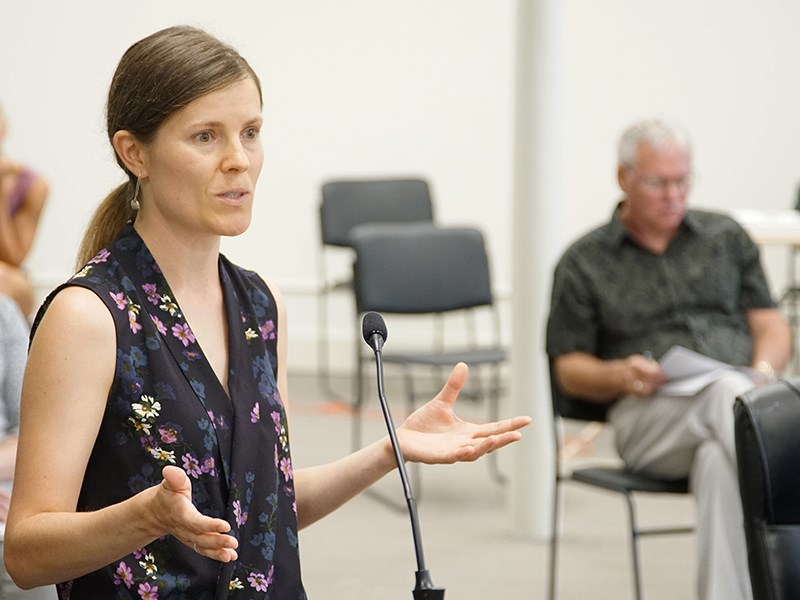City of Powell River Council will consider an on-demand bus pilot project initiative that would provide a new type of bus service to the community.
At the August 18 committee of the whole meeting, sustainability planner Ana Lukyanova said her report to the committee is a funding request for the city’s climate action reserve fund in support of the on-demand initiative. Lukyanova said she has been working with grant funders for this potential project and to develop a detailed budget.
Lukyanova said on-demand busing has been shown to offer multiple benefits to communities that have implemented it. Benefits include better user experiences, shorter waiting times, increased rider satisfaction and reduced transit operator costs. She said this results in being able to move more people with fewer buses, travelling less distance.
According to Lukyanova, through the initiative, Powell River could take advantage of $200,000 in federal funding.
“It’s a unique chance for us to pilot such a service, gather the data, gather feedback from the community and use the results of this pilot to work with BC Transit moving forward,” said Lukyanova.
More than half of the funding would be covered by the federal funding, according to Lukyanova. Her written report to the committee also shows a city expenditure of $169,000, the majority of which would be the cost of a driver. City money to underwrite the project is being requested from the climate action reserve fund, which currently has $221,256 available.
The bus itself is funded through the federal program.
Councillor George Doubt said he had not seen a comparison of greenhouse gases between on-demand transportation and taxis, walking, regular cars and scheduled transportation. He asked Lukyanova if she had any information on that.
“What we are looking at is funds devoted to climate change and reducing greenhouse gases, but I didn’t see anything like that in the report,” said Doubt.
Lukyanova said she didn’t have a general statement to make about it because it’s still relatively new but what she can share is in Belleville, Ontario, there has been a large increase in ridership and a reduction in mileage with the on-demand program.
In May, Lukyanova reported to council, and in a written report presented at the time, she stated that for on-demand service, trip requests are made via smartphone or phone. On-demand software automatically receives and instantly processes those requests to create a route that picks up and delivers all passengers to their destinations in the shortest time possible. She stated that drivers simply follow directions from their onboard GPS unit powered by the on-demand software.
“Riders have a simple, user-friendly experience similar to using apps such as Uber or Lyft, but the rides are shared with multiple people on board the bus at the same time to dramatically improve efficiency and reduce cost per ride provided,” stated Lukyanova.
The pilot project would last a year, according to Lukyanova.
In a written report to the committee of the whole, she stated the service will operate one on-demand wheelchair-accessible bus, seven days a week, eight hours per day, in the afternoon and evening hours. The service is intended to capture more casual, ad-hoc afternoon and evening travel as well as providing wheelchair accessible service after 5 pm when handyDART service is not available.
The matter will go to the September 3 city council meeting for consideration.



